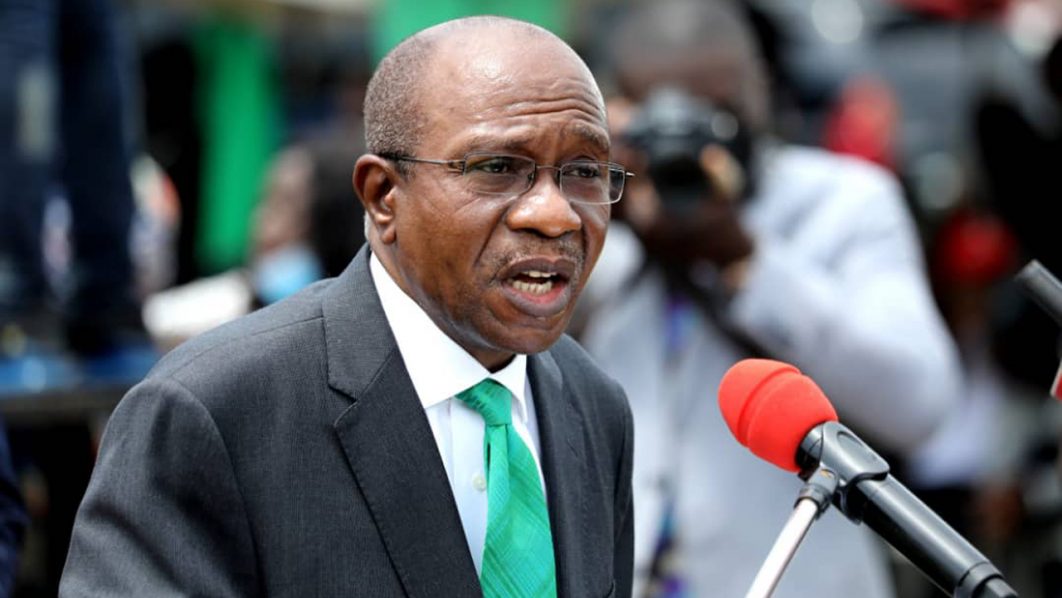About N531.4bn of the Central Bank of Nigeria intervention funds remains unused in the coffers of nine Deposit Money Banks in the country, findings by The PUNCH have shown.
This came on the heels of the suspension of all CBN intervention funds by the incumbent governor of the apex bank, Olayemi Cardoso.
Last October, the CBN governor upon assumption of office stopped all development finance interventions, stating that the lines between monetary policy and fiscal intervention had become blurred.
Thus, he said that in refocusing the CBN to its core mandate, there was a need to pull the CBN back from direct development finance interventions into more limited advisory roles that support economic growth.
The CBN under the embattled former governor, Godwin Emefiele, had delved into several intervention programmes such as the Anchor Borrowers Programme, the 100-for-100 Policy on Production and Productivity, the Nigerian Electricity Market Stabilisation Facility, N1trillion Real Sector Facility, Agribusiness/Small and Medium Enterprise Investment Scheme and Micro, Small and Medium Enterprise Development Fund amongst others.
Over N9.71tn in development finance intervention disbursements were reportedly made under the previous CBN administration.
Cardoso then said, “In refocusing the CBN to its core mandate, there is a need to pull the CBN back from direct development finance interventions into more limited advisory roles that support economic growth.”
Its advisory roles would include acting “as a catalyst in the propagation of specialised institutions and financial products that support emerging sectors of the economy. Facilitate new regulatory frameworks to unlock dormant capital in land and property holdings.
“Accelerate access to consumer credit and expand financial inclusion to the masses. It would also focus on de-risking instrumentation to increase private sector investment in housing, textiles and clothing, food supply chain, healthcare, and educational supplies.”
However, the latest findings by us show that nine banks still have over N530bn in unused intervention funds in their books.
An analysis of the banks’ latest financial statements showed that they still had funds received from the central bank intended for disbursement to beneficiaries.
The banks are Wema Bank, Stanbic IBTC Bank, Access Bank Plc, Sterling Bank, Guaranty Trust Bank, First City Monument Bank and Fidelity Bank, Zenith Bank and United Bank of Africa,
A further breakdown showed that Zenith Bank holds the highest amount of intervention funds, totalling N157.81bn, with Fidelity Bank following closely behind with N98.85bn. Third on the list is Access Bank with N94.63bn while Sterling Bank has N80.34bn. Other banks include GTB with N52.39bn, UBA (N20.87bn), FCMB (N13.17bn), Stanbic IBTC (N11.49bn) and Wema Bank has N1.83bn.
A cursory look at Zenith Bank disclosed that the bank has N12.65bn under the CBN Commercial Agriculture Credit Scheme, N122.42bn under the Salary Bailout Scheme was approved by the Federal Government to assist state governments in the settlement of outstanding salaries owed their workers.
Also, the bank has N13.42bn unallocated funds under the Real Sector Support Facility and N11.66bn under the National Food Security Programme.
For Access Bank, the bank has unused funds of Central Bank of Nigeria – Salary Bailout facilities worth N57.6bn while N8.2bn was unused under the Real Sector And Support Facility at the end of the 2023 financial year.
Similarly, Fidelity Bank has N4.95bn under its Real Sector Support Facility, N6.5bn from the Commercial Agriculture Credit Scheme and a CBN unused fund of N79.8bn.
Attempts by our correspondent to get an official reaction on what the apex bank is doing to recover unused funds from the banks was unsuccessful as of press time on Sunday as the number of the acting Director of Communications, Hakama Sidi Ali, was unreachable.
However, a top official of the CBN who is not authorised to speak to the press said the bank was aware of the situation. According to him, there are laid down rules for recovering such funds.
The official said, “There is a committee on the Anchor Borrowers programme and they have been asked questions on the funds. The committee hasn’t concluded sitting so I can’t give a definite response. Also, when the loans were given out, there were laid down procedures between the banks and the apex bank, and those laws will be looked into to get back the funds.”
Meanwhile, at the International Monetary Fund/World Bank Spring Meetings in Washington DC, Cardoso restated that the apex bank would not return to development financing but focus on advisory roles on economic growth.
“Of course, the next thing in terms of sequencing was to make it abundantly clear that the era of interventions, which really hadn’t taken us anywhere, was over. I intended to go back to orthodox monetary policy. I think those were very important things to make very clear. I think that helped to set the stage for what came after. It was very important to continue to reemphasise those things in the process of building trust,” he said.
It is however unclear if the apex bank will allow banks to complete the disbursement of the funds currently with them.
But top officials of commercial banks said lenders would keep the funds until the central bank calls for them.
However, small business operators have asked that the CBN allow the banks to complete the disbursement of the funds that are still unused with the banks.
The National Vice Chairman of the Nigeria Association of Small-Scale Industrialists, Segun Kuti-George, dropped the hint in a brief interview with our correspondent.
Kuti-George also faulted the decision of the federal government to pay intervention funds through commercial banks stressing that such moves are not rightly conceived.
He, however, advised the government not to take such decisions without discussing it with the players in the industrial field.
The Nigerian Financial Intelligence Unit and the Nigeria Incentive-Based Risk Sharing System for Agricultural Lending have moved to crack down on defaulters in the N1ton Anchor Borrowers’ loan scheme.
The move, the organisations noted, was to recover all outstanding debts from defaulters of the Anchor Borrowers Scheme.
The development was revealed during a visit by the Managing Director, NIRSAL, Abubakar Kure to the Director and Chief Executive Officer, NFIU, Hafsat Bakari during the week.
“The Nigerian Financial Intelligence Unit and the Nigeria Incentive-Based Risk Sharing System for Agricultural Lending have concluded the plan of action to recover all outstanding debts from defaulters of the Anchor Borrowers’ Scheme funded by the CBN,” the NFIU said in a post on its official X handle.
Confirming the development in an exclusive interview with one of our correspondents on Sunday, the spokesperson for the NFIU, Sani Tukur, said over N1tn was disbursed to beneficiaries.
He, however, said only 30 per cent had been recovered.
Tukur said, “The directors met on Wednesday and finalised on how to recover the money from defaulters. The NIRSAL MD revealed that only 30 per cent was recovered out of over ₦1tn disbursed to the beneficiaries.”
The Anchor Borrowers scheme of the CBN was established in November 2015.
Also, about N1.12tn was disbursed to 563 farmers. While about N670.4bn has been repaid about N450.90bn remains outstanding. The programme has been discontinued and the apex bank is currently trying to recover funds.
Meanwhile, an email seen by one of our correspondents confirmed the CBN suspension of all intervention loans.
The email was titled ‘Suspension of New Applications Under CBN Development Finance Intervention Programs.”.
It read in part, “This is to notify you that the Central Bank of Nigeria has discontinued the processing of new loan applications under its existing development finance intervention funds program such as Nigeria Incentive-Based Risk Sharing System for Agricultural Lending (NIRSAL), Accelerated Agricultural Development Scheme (AADS), Anchor Borrowers Program (ABP), Agri-Business/SM E Investment Scheme (AGSMEIS) Real Sector Support Fund (RSSF) etc.
“However, all existing CBN develop finance intervention funds with approved interest rates remain unchanged and are to be fully repaid in line with the terms and conditions.”






2 Comments